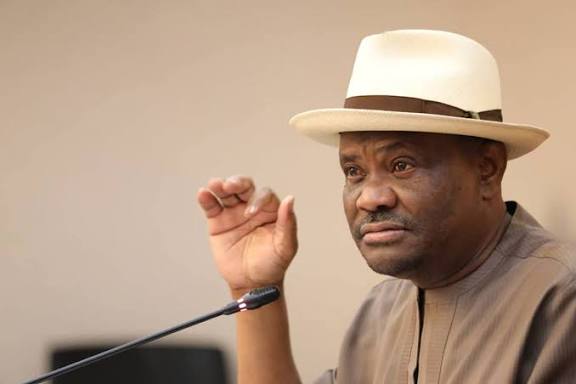A deepening scandal involving Nigeria’s Minister for the Federal Capital Territory, Nyesom Wike, has emerged amid disclosures of his covert purchase of high-value properties in Florida.
Central to the uproar is Wike’s reported bid to revise his asset submission to the Code of Conduct Bureau (CCB) in Nigeria, aiming to retroactively list recently uncovered real estate in Florida and elsewhere abroad.

CCB representatives, however, notified him that the original filing had already been passed along to the Economic and Financial Crimes Commission (EFCC) for detailed scrutiny and probe.
Insiders close to the minister indicate that this development has caused significant unease within his inner circle.
In-depth reviews of accessible U.S. public records and deeds have uncovered a concerning history of obfuscation and potential breaches of Nigeria’s mandatory asset reporting requirements for government officials.

Exclusive documents acquired by select news organizations show that Wike secured a $2 million residence in Winter Springs, Florida—registered covertly under the names of his spouse, Justice Eberechi Wike, and their three children, rather than his own.
This deal was finalized via a discreet off-market sale in March 2025, carefully arranged to sidestep any overt connection to Wike personally.

The property is a spacious two-story home encompassing more than 4,000 square feet.
Deeper scrutiny points to three additional luxury residences in upscale Florida neighborhoods, acquired through anonymous cash deals and quickly reassigned to the couple’s children using quitclaim deeds signed by Wike’s wife—a prominent figure in Nigeria’s judiciary.
These deals, executed between 2021 and 2023, were shrouded in confidentiality, seemingly designed to shield them from oversight by Nigerian watchdogs like the CCB, EFCC, and the Independent Corrupt Practices and Other Related Offences Commission (ICPC).

Under Nigerian regulations, public servants are required to transparently report all assets, whether local or international. Wike’s preliminary declaration, however, glaringly excluded these overseas holdings.
When Wike approached the CCB to incorporate these assets into his records, officials explained that the dossier was no longer in their hands, having been routed to the EFCC.
“The EFCC is presently undertaking a comprehensive forensic review of Wike’s submissions, property titles, and any suspected irregularities,”
In response, civil society groups, activist networks, and global watchdogs have intensified calls for a full-scale inquiry into Wike’s monetary activities.
They argue that the claims extend past simple nondisclosure to potential misappropriation of state resources and unlawful wealth accumulation.
Spokespeople for Wike have rejected the accusations outright, labeling them as orchestrated smears intended to erode his authority and clout.
The minister has dared his critics to substantiate their claims, framing the narrative as a partisan smear campaign against a dedicated leader.
Yet, the irrefutable paperwork lodged in American land registries paints a starkly contrasting picture.
An anonymous EFCC official warned that the minister is treading dangerous ground, remarking, “His words: ‘He should keep denying. But what I can say is, the CCB’s initial receipt and forwarding of Wike’s asset declaration to the EFCC is a procedural matter. It is part of our mandate to uphold integrity in public service. The ongoing forensic financial investigations will definitely uncover the truth.’”




